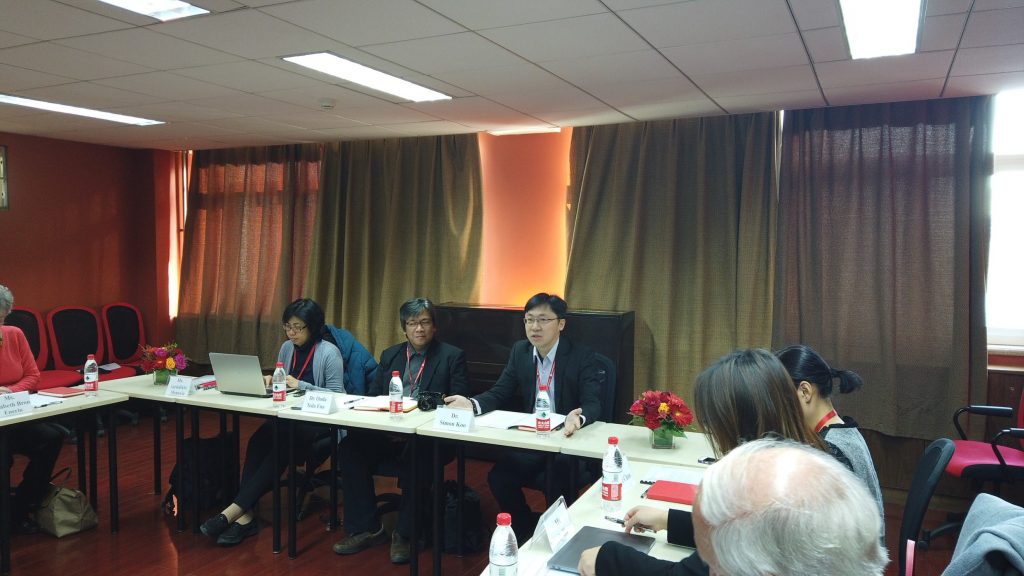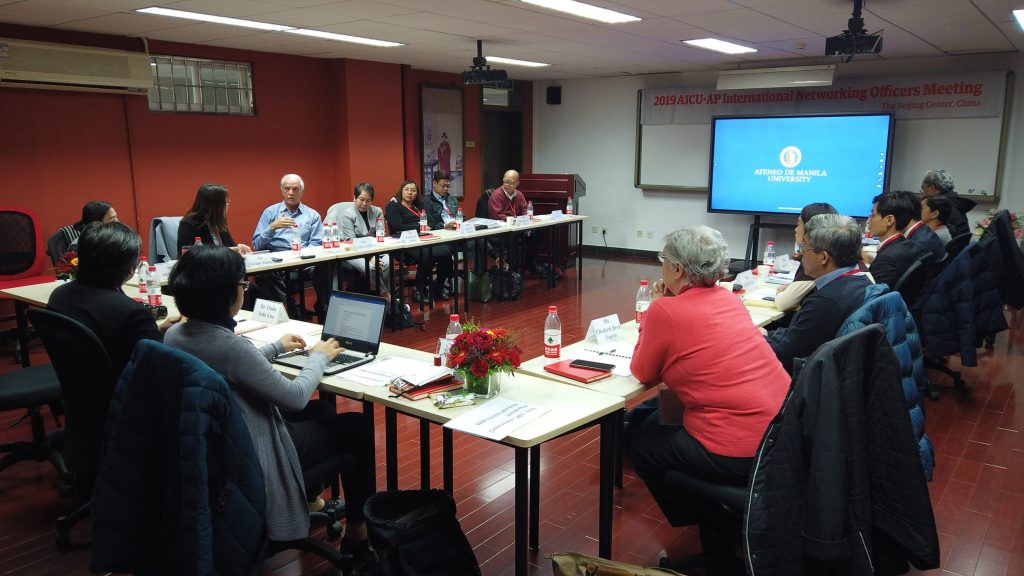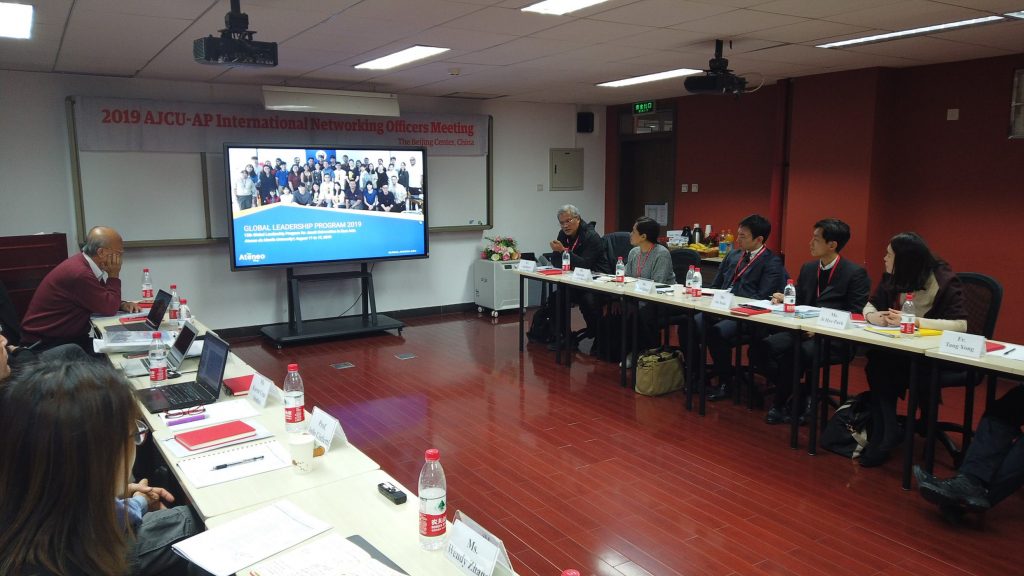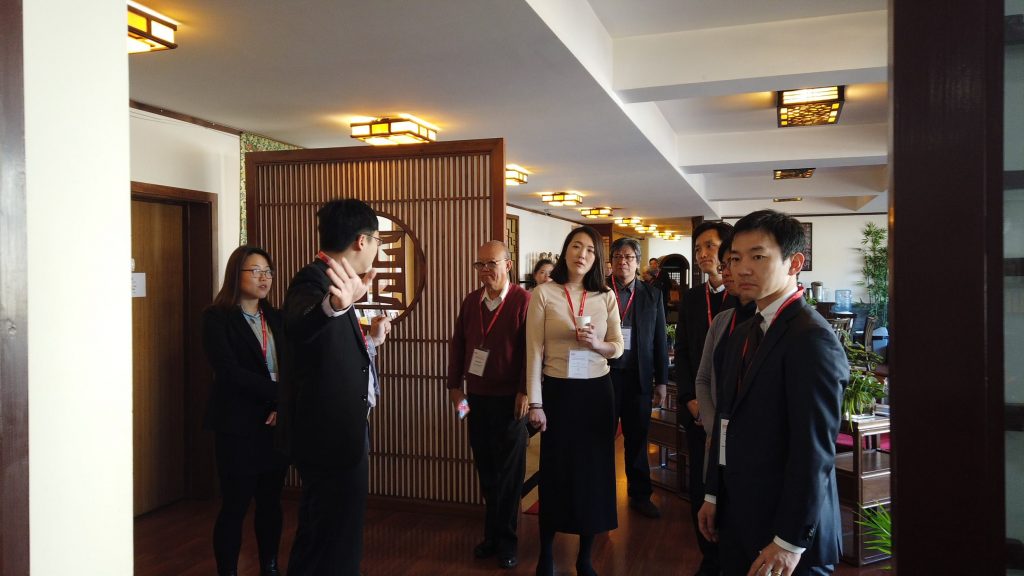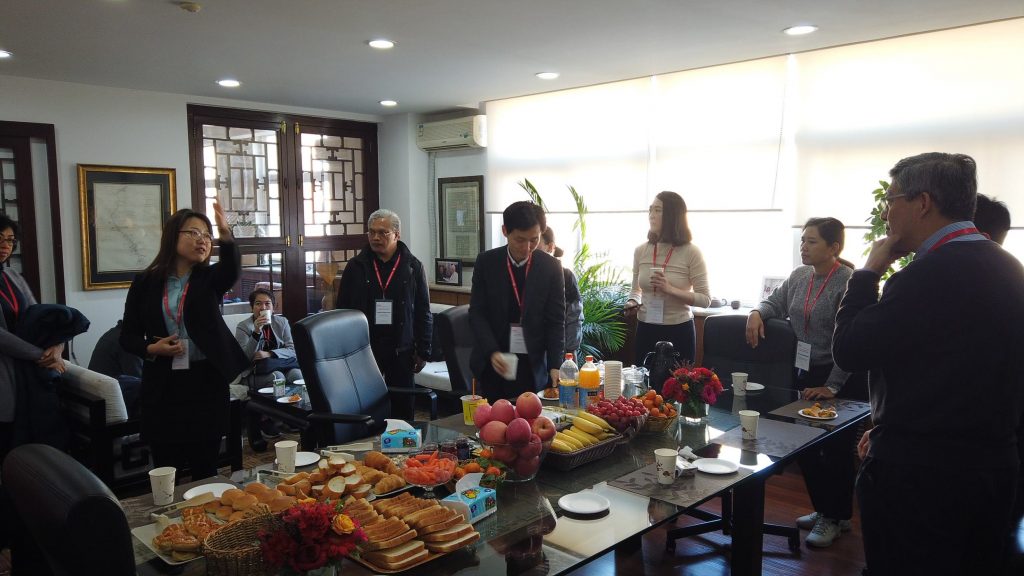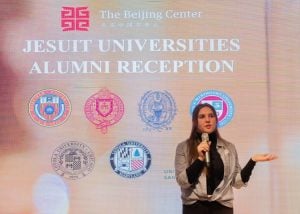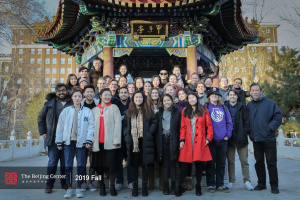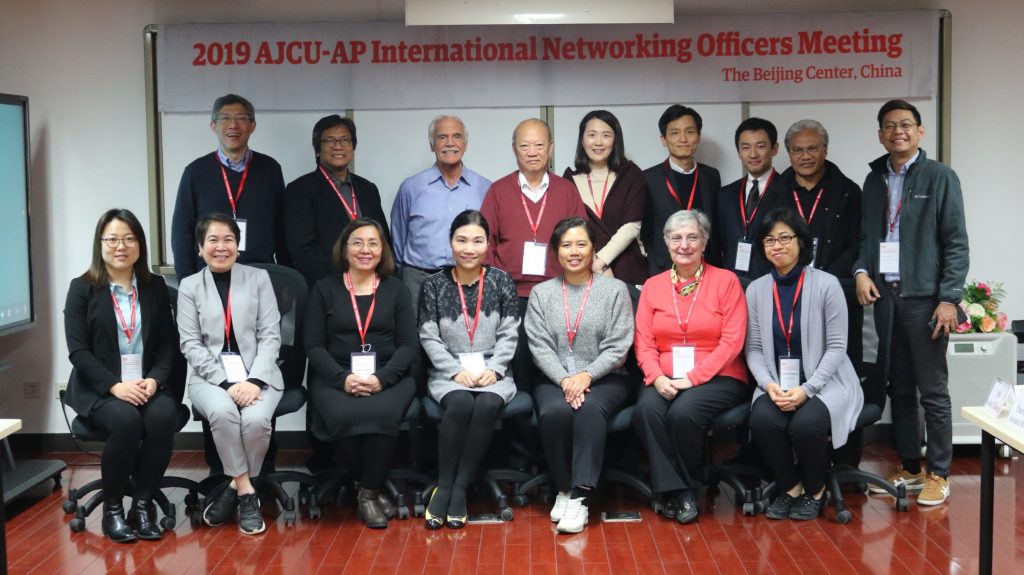
Developmental Reflections on Leadership and Service Learning Programs at the 2019 AJCU-AP INO Meeting
On December 7, 2019, The Beijing Center (TBC) hosted the annual Association of Jesuit Colleges and Universities in Asia Pacific’s International Networking Officers Meeting (INO). The conference brought together directors, administrators, and educators from the AJCU-AP, including the Philippines, Hong Kong, Korea, Japan, and Indonesia, as well as the United States, to reflect on leadership and service learning programs, practices, and ideas for future improvement.
Institutions represented included Fu Jen Catholic University, University of Hong Kong, Georgetown University, Sophia University, Sanata Dharma University, Xavier University – Ateneo de Cagayan, Sogang University, Ateneo de Davao University, Ateneo de Manila University, and TBC, acting in cooperation towards providing the Global Leadership Program (GLP) and Service Learning Program (SLP) to more students. These programs aim to provide opportunities for students to apply Ignatian Pedagogy and develop Ignatian Leadership, to which they can use in their everyday life, gain a better understanding of global and community-relevant challenges, and discover the immense difference they can make. During the meeting, two AJCU-AP universities presented cases for each program.
Global Leadership Program – Ateneo de Manila
As a result of the growing partnerships between these universities, each year a different institution hosts the GLP, providing students with a versatile learning experience in Japan, Korea, the Philippines, and Taiwan. The programs differ in the themes and subtopics chosen by each institution, which are apparent in the lectures, field work, cultural visits, and discussions that each university crafts for the students they host.
Karen Cruz Sunico, from Ateneo de Manila discussed field engagement programs for students. As part of the university’s Global Leadership Program, students are able to increase their knowledge about global health and leadership through lectures and hands-on experiences, that target the dissection of the dominant health issues in the Philippines and the Department of Health’s role in alleviating the detrimental health risks. The health issues addressed include mental well-being and intellectual competency, in accordance with the Jesuit ways. The commitment to the Jesuit spirit is also a part of the Xavier Learning Program (XLP), which desires to empower young people, help them out of their difficult circumstances, and transform them into well-rounded individuals.
Service Learning Program – Ateneo de Davao
The SLP focuses on providing a place for Jesuit university students in their effort in applying the Ignatian Pedagogy in their everyday life.
Program Manager, Agnes Sagaral, presented a compelling report on the peacebuilding efforts enforced by Ateneo de Davao’s Service Learning Program, where students have the opportunity to participate in the healing and reconciliation of the Mindanao community. As a result of the challenges facing the Mindanao community, the program objectives focus on students’ involvement in the local neighborhoods. In providing reflective and interactive activities, participating students learned about Davao through city tours, encounters with Madaris volunteers, workshops on performing arts for peace, and many other diverse experiences. Learning about what students see, hear, and do, facilitated an important discussion on the crucial role of the faculty joining the students. The administrators and educators at the conference concluded that a set of guidelines should be established for the responsibilities of the faculty during the service learning programs.
The leadership and service learning programs offered by these institutions are deeply rooted in the Jesuit spirit, the Universal Apostolic Preferences (UAP) guidelines, and the value of sharing with the community while shaping students’ futures. They address societal issues often purposefully ignored by mainstream society that are hard to put into words, and even harder to face, pushing them to face their own privileges head-on. They meet the students’ experiences with those of the communities, encouraging cultural and leadership interactions in realms they may not have ever encountered before. In addition to learning from local communities, the students give back through language exchange, thus improving their own linguistic skills in the process. The challenge in doing so, lies in establishing the appropriate guidelines, activities, and measurements to assess the benefits students receive from their involvement.
This conference served as a meaningful dialogue that established the common ground on which these institutions’ programs are developed, reviewed, and improved. Important decisions were made about components such as the delegation, the incorporation of UAPs into each program, the type of students participating in the programs, safety and security, the balance of service and learning, and the level of immersion in the local communities. Overall, the annual International Networking Officers Meeting was deemed a success, and the programs are set to benefit from the results that will be further realized.



